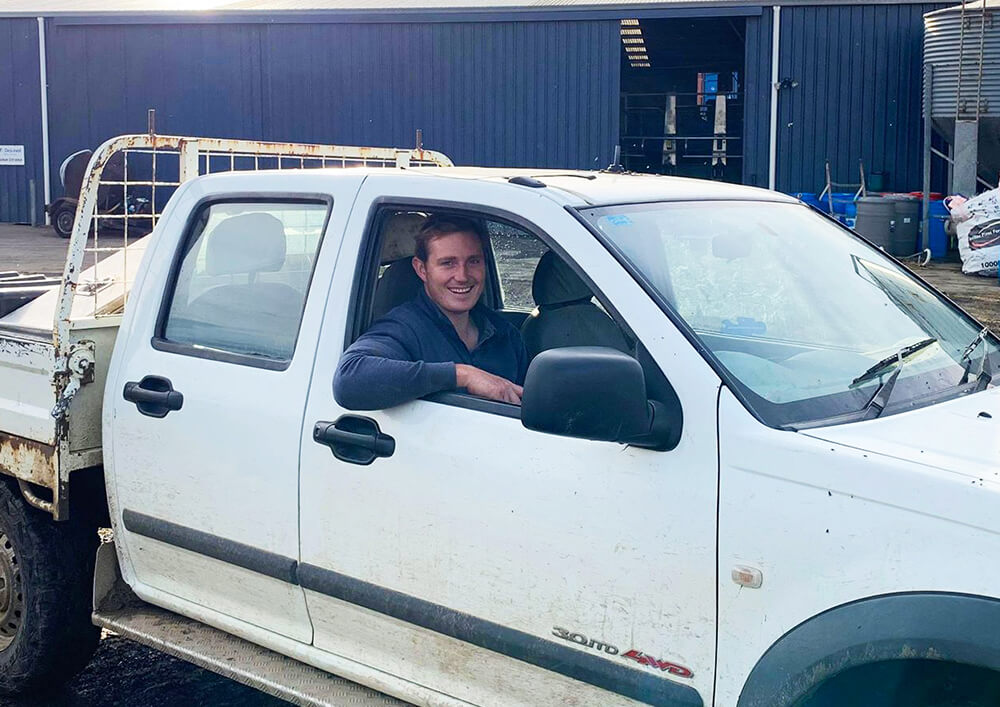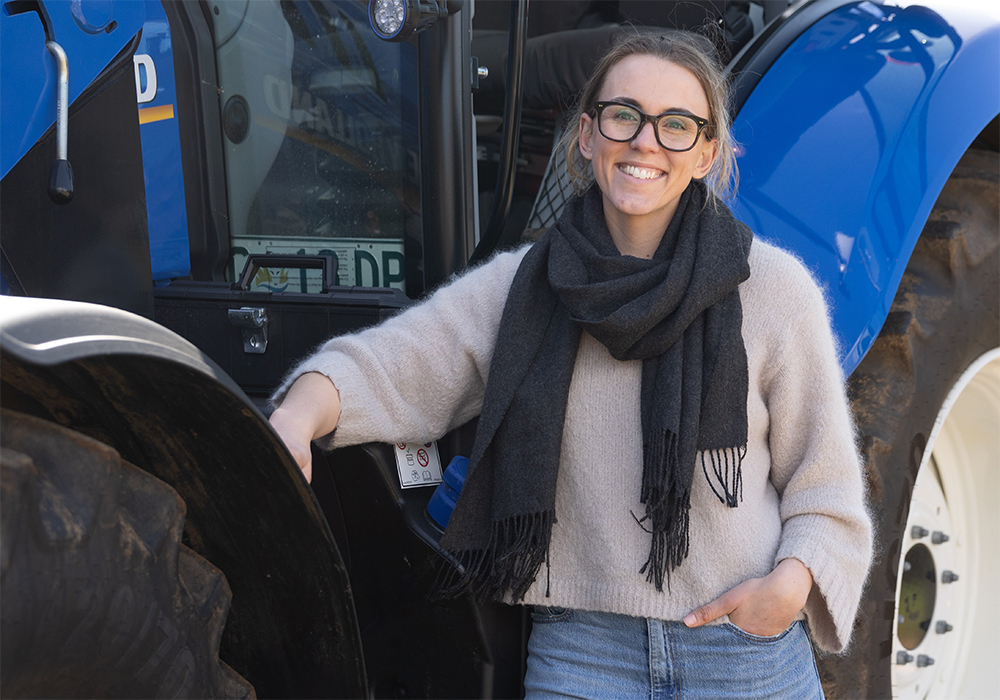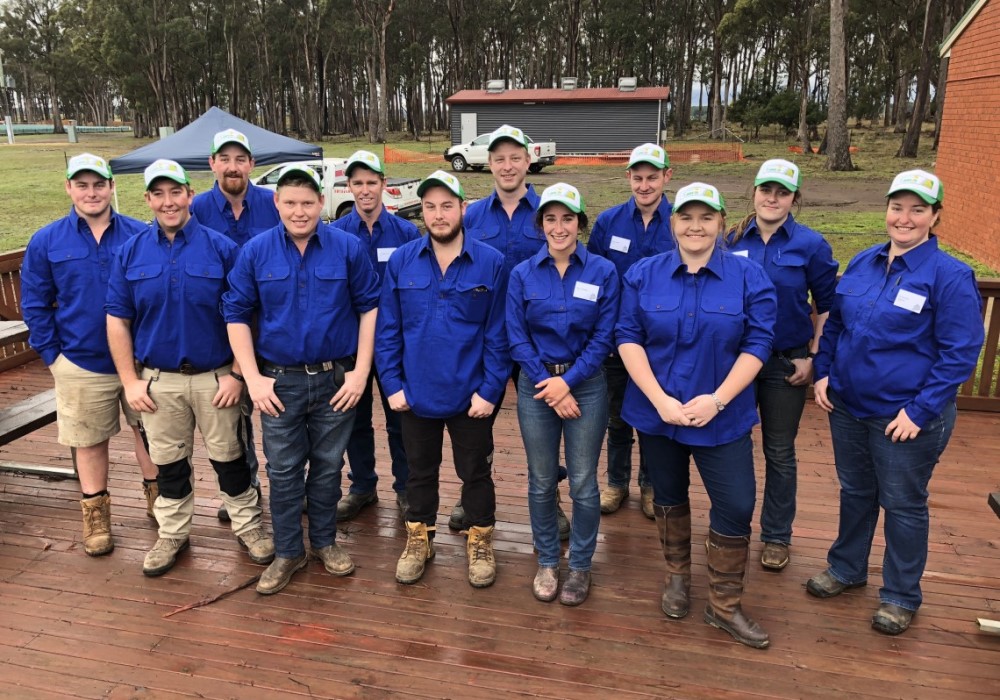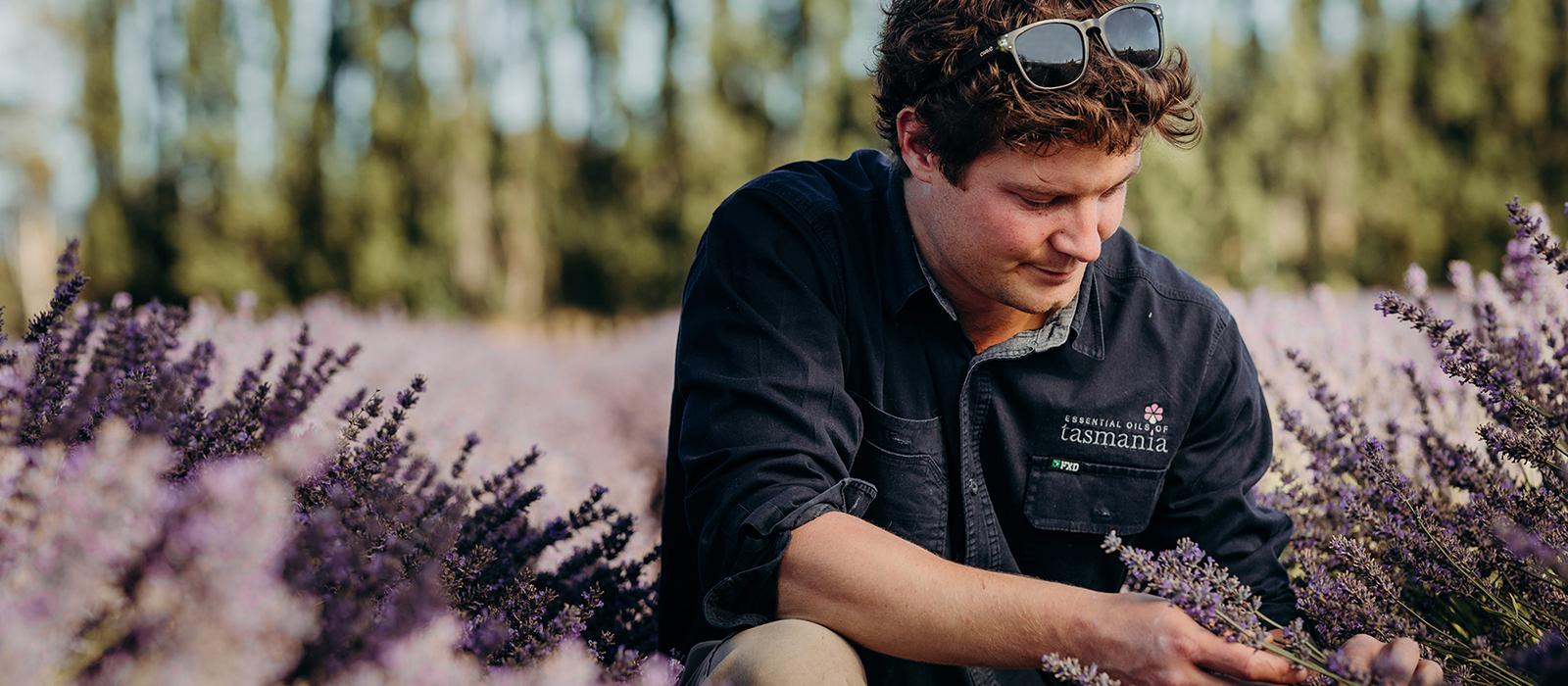
Access to quality fresh produce is a basic need for human survival. Of course, it all needs to come from somewhere (and we don’t mean the supermarket!) In Tasmania, we’re producing some of finest produce in the world. Our Tasmanian agricultural sector is booming. We are embracing research, harnessing natural resources and investing in skilled people.
Record-breaking growth
The reputation of Tasmania’s agricultural industry is growing every year. We are no longer known simply as the ‘Apple Isle’. Today, Tasmania is a world leader across a range of agricultural sectors. What’s more, our spectacular produce is in high demand around the globe.
In 2023, Tasmania’s gross farm gate value exceeded $2 billion for the first time. That’s a truckload of money coming into our state. More importantly, it’s creating all sorts of exciting job opportunities. Our sustainable agriculture, forestry, and fisheries sectors employ approximately 14,500 people. This is the second-highest employment sector in the state – and it’s only going to get bigger.
Tasmania’s international export markets
Even more career opportunities in the future
Tasmanian farmers produce FIVE times more produce than we can consume in the state. The extra produce (aka the ‘surplus’) is exported interstate and overseas. New markets are opening all the time and the value of Tasmania’s agricultural production is expected to be around $10 billion by 2050. (that’s five times the production value of 2023).
To achieve this type of growth, the industry will need to develop a skilled workforce. It will need to focus on innovation. The industry will need to embrace leading-edge technologies, and world’s best practices (and fast).
Tasmania’s agricultural production – quick facts*
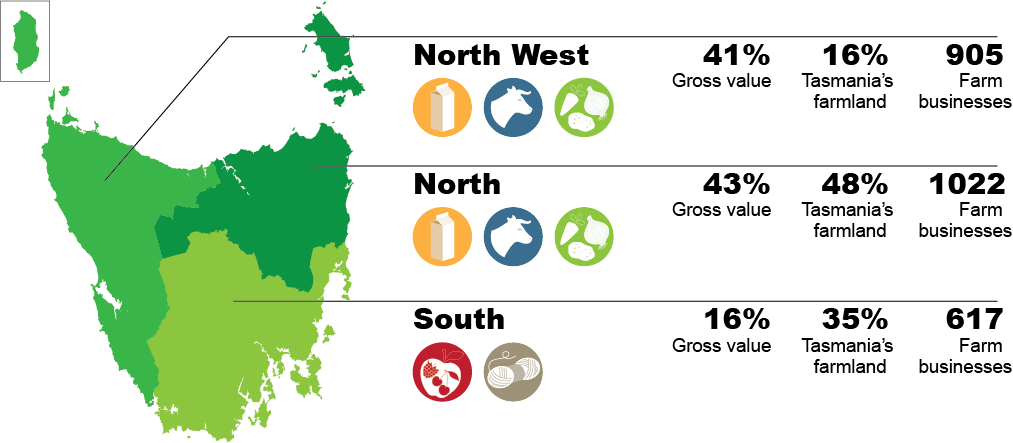
Cool tech, smart tools and the world’s best practices
Imagine a world where farmers use smart tools and cool gadgets like drones. They use these to keep crops healthy and identify paddocks where soil nutrients are deficient. They even have the potential to grow new varieties of fruits and vegetables (spoiler alert – it’s already happening).
An agricultural revolution is underway in Tasmania. New career paths are opening up like never before. In short, it’s an awesome time to be working in agriculture (or for that matter, starting your career).
In the section below, we’ve provided a snapshot of potential career paths. Let’s start with a few broad areas of employment in agriculture. These include:
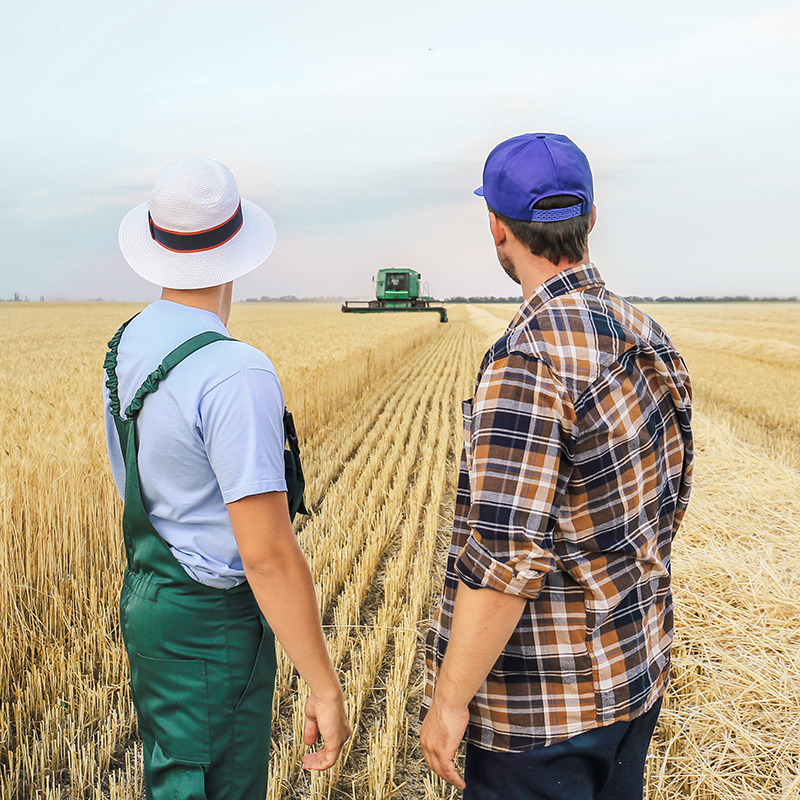
Agricultural Engineers
Agricultural engineers analyse farming operations. They work together with farmers to improve land use and develop methods to conserve resources, and increase crop productivity.
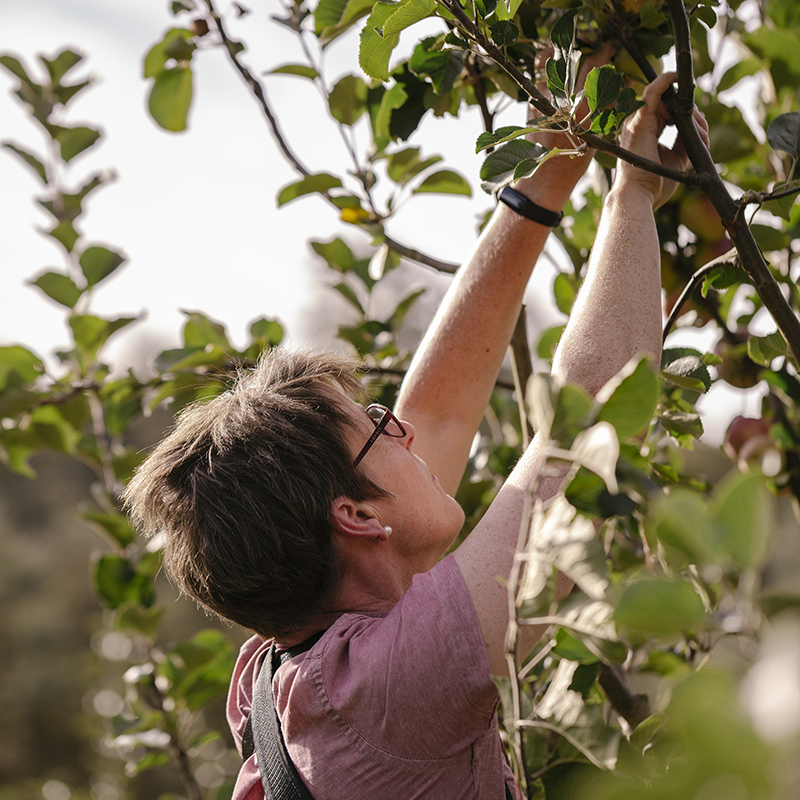
Labourers
If you have strength and stamina, there are plenty of jobs where you can work on the land. Tasks include planting, harvesting, caring for animals, and maintaining equipment.
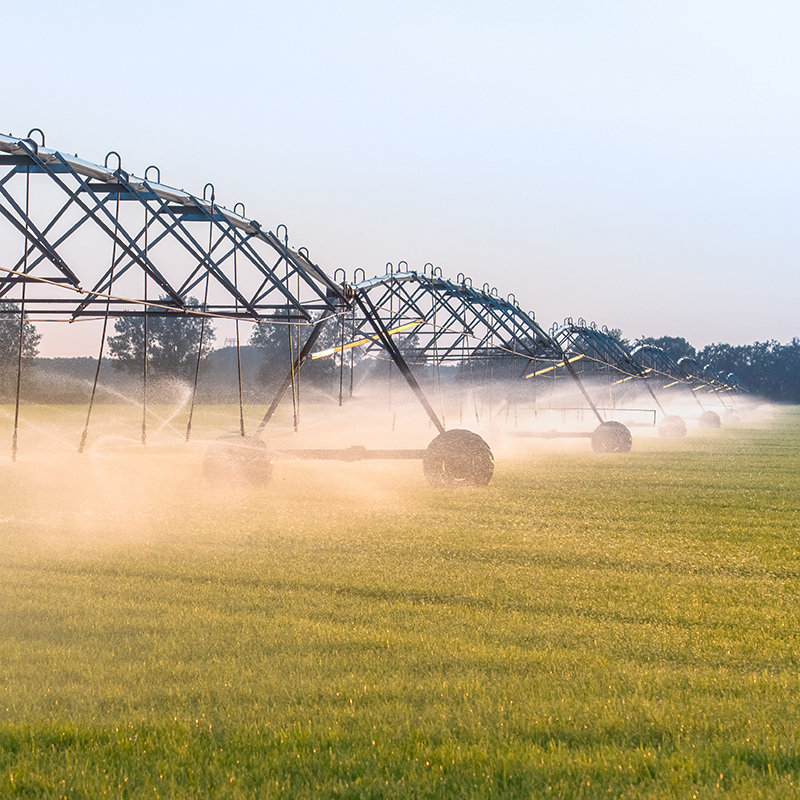
Sales Careers
Sales representatives assess customer needs. They design solutions and contribute to clients’ goals. Often this includes selling equipment and resources such as seeds and feed to farm managers.
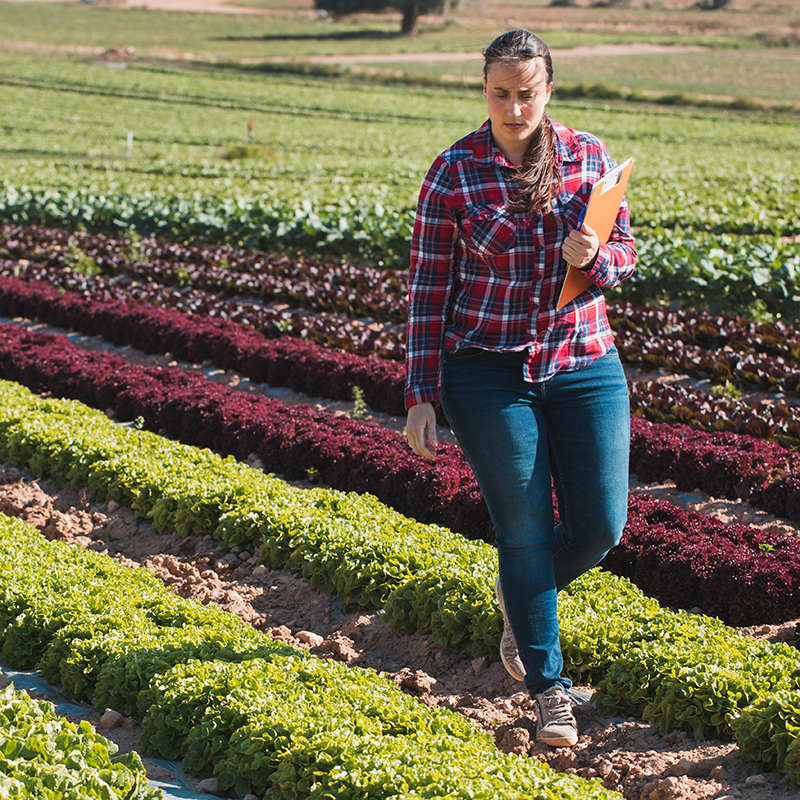
Agricultural Scientists
Agricultural scientists can make a huge difference to a farming operation. They review farming practices, design solutions, and develop products related to crops, livestock, and food production.
More specialised career paths include:
Agricultural Consultants
Agricultural Consultants develop procedures and techniques for solving agricultural problems and improving farm production in areas such as feeding programs, soil improvement and animal husbandry. They may also assist farmers in business analysis, the arrangement of sales, act as a mediator or broker, or run farms for absentee owners
Agricultural Economists
Agricultural economists perform economic research and analysis, develop and apply theories about production and distribution of goods and services and people’s spending and financial behaviour, and provide advice to governments and organisations on economic policy issues
Agricultural Educators
Agricultural Educators prepare school field projects, exhibits and agricultural demonstrations as part of the general school activities. Agricultural teachers utilise a combination of theory and practical based lessons
Agronomists
Agronomists work with farmers and other stakeholders to develop and implement sustainable agricultural practices that promote soil health and conservation, water management, pest control, and other measures to maximize crop yields
Commodity Traders
Commodities Traders operate as independent agents to bring together buyers and sellers of agricultural goods, negotiate private sales and arrange sales through established market places
Conservation Planners
Conservation Planners provide essential services in preserving and managing natural habitats, including a variety of flora and fauna monitoring projects, fire ecology, bushfire management projects, and nature-based recreation planning
Environmental Scientists
Environmental Scientists use their knowledge of the natural sciences to protect the environment.They use their knowledge of the natural sciences to protect the environment and human health. They may clean up polluted areas, advise policymakers, or work with industry to reduce waste
Farm Equipment Mechanics
Farm Equipment Mechanics focus on the repair, maintenance, and servicing of various types of farm equipment
Financial Analysts
A Financial Analyst is responsible for the financial health of a business by analysing data and preparing detailed reports. Their role also involves forecasting future performance and recommending ways to improve financial stability
Farm Managers
A farm manager is responsible for overseeing day-to-day operations on a farm, including crop production, livestock care, equipment maintenance, and staff management. They also need to ensure that the farm is complying with all regulations and safety standards
Food Safety Inspectors
Food Safety Inspectors monitor processing operations, inspect equipment and identify potential sources of contamination. Most foodborne illnesses come from bacteria, so cleanliness and temperature control are essential at every stage of production
Horticulturists
Horticulturists generally focus on food and crop cultivation, involving themselves in any number of crops such as flowers, spices, vegetables and fruits. This focus can qualify horticulturists to provide specialist advice on crop maximisation and harvesting techniques to assist farmers in crop production
Livestock Managers
Livestock Managers coordinate and share duties and responsibilities with the farm owner. They make decisions about day-to-day operation, such as when an animal needs to fed or when veterinarians need to be called
Pest Control Specialists
Pest Control Specialists apply pest management techniques to manage and control animal and invertebrate pests on farms and in crops
Precision Agriculture Technicians
Precision Agriculture Technicians install, calibrate, and maintain precision agriculture equipment such as GPS systems, yield monitors, variable rate application equipment, soil moisture sensors, and aerial imaging technology
Rural Appraisers
Rural Appraisers are responsible for evaluating and placing monetary value on various items within the agricultural sector. An example of these are property divisions, estate planning, valuing agribusiness, establishing value for potential sale, and appraising conservation easements
Seed Analysts
Seed Analysts are responsible for analysing and evaluating seed samples for purity, variety, and germination
Veterinarians
A Veterinarian is an animal healthcare professional who diagnoses and treats injuries and illnesses in animals. They use medical tools and diagnostic equipment like x-ray machines and perform surgeries when necessary. Veterinarians provide essential medical services for pets, similar to how doctors care for humans
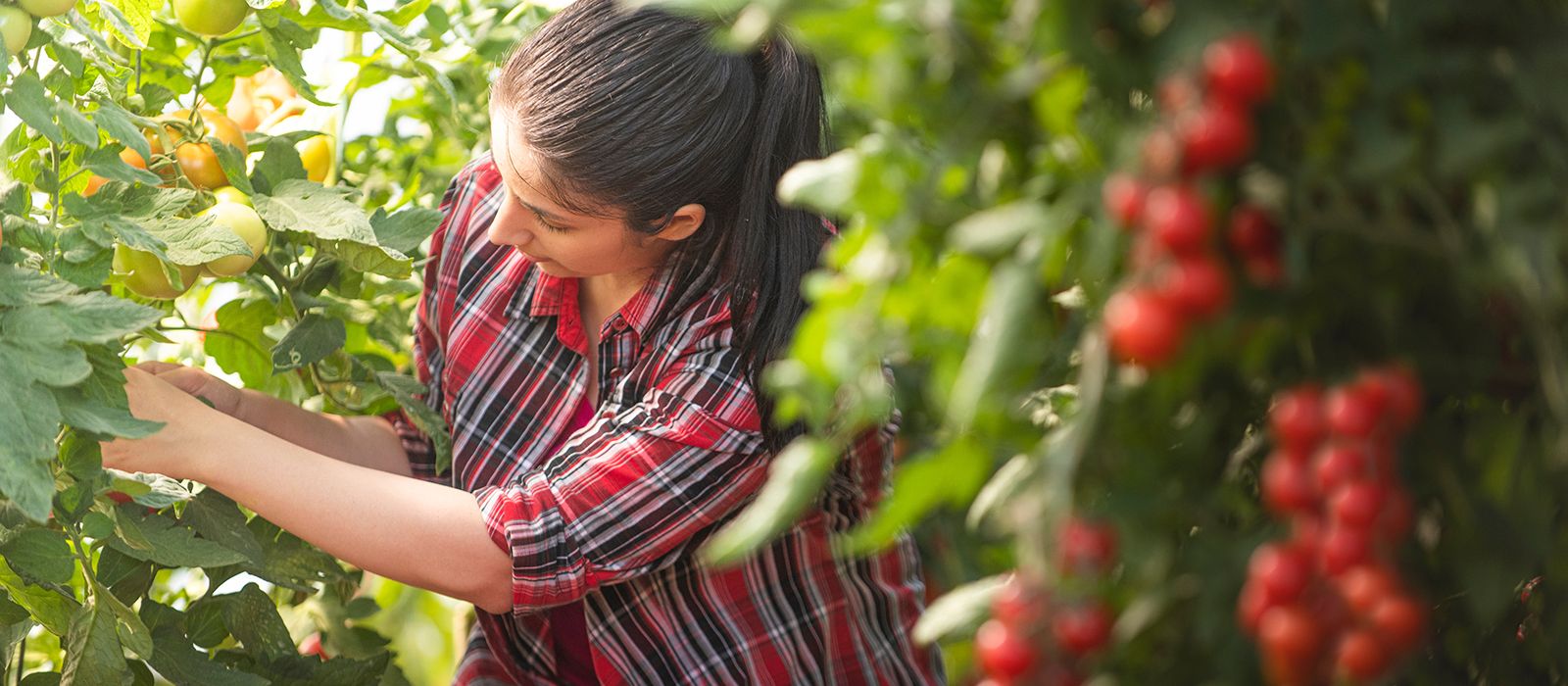
The Tasmanian Institute of Agriculture (TIA)
The Tasmanian Institute of Agriculture (TIA) is a specialised institute at the University of Tasmania and plays an important role in Tasmania’s agri-food sector. Aspiring agricultural leaders can study a future-focused degree which equips students to address global challenges.
SMART Research Farms: TIA conducts highly relevant research directly benefiting Tasmania’s agriculture industry. Research areas span agricultural systems, food safety, horticulture, and livestock production. Their research facilities are equipped with advanced technology, providing real-time data for informed decision-making by growers.
Industry Engagement: TIA works with local, national, and international stakeholders, ensuring their research provides practical solutions for farmers and food producers. Through this collaborative effort, TIA aims to boost productivity while ensuring the sustainable management of Tasmania’s natural resources.
Tasmania’s agricultural production is expected to be around $10 billion by 2050
Our sustainable agriculture, forestry, and fisheries sectors employ approx 14,500 people
We’ve planted the seed for an exciting career in agriculture
If you’re interested in working on the land or working with animals, or new-age technology, take a serious look at a career in agriculture. Better still, do some digging online at career paths that sound interesting.
Good luck with your digging.
Explore our Agriculture Career Stories, Events and News
Upcoming Events
University of Tasmania Open Day – Launceston
Open Day is a great way to explore campuses and get a taste of life at the University of Tasmania. You can hear all about their courses, pathways and scholarships…
University of Tasmania Open Day – Hobart
Open Day is a great way to explore campuses and get a taste of life at the University of Tasmania. You can hear all about their courses, pathways and scholarships…
Fearless Festival 2024
Fast track your career, the future is FEARLESS The annual Fearless Festival, promotes the range and diversity of employment and career choices in Tasmania. The forum allows young and not…
Navigating your post-school plans with confidence
School is such a big part of your life; you might have mixed feelings as you approach the end of it. You might be excited about your next steps. But…

